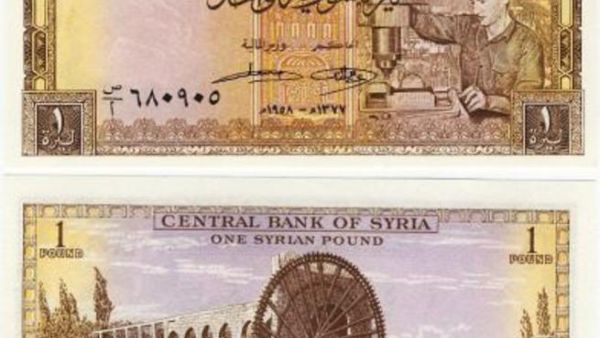Syria has spent $2 billion defending its currency since the start of an uprising five months ago against the rule of President Bashar Assad, said Adib Mayaleh, governor of the central bank.
The money came from a fund the government created two years ago that had $5 billion when the revolt began, Mayaleh said in a phone interview from Damascus Friday without giving details of the currency transactions. The Syrian currency has lost 3 percent against the dollar during that period. “These funds were for specific use in hard times like these,” he said. “As we say in Syria, save your pennies for black days.” He added, “We are in these times at the moment, these are hard days that Syria is going through and everyone is coming together to find solutions.”
Protests against Assad’s rule have swept the country since mid-March, inspired by the uprisings that ousted the longtime rulers of Egypt and Tunisia and helped spark a rebellion in Libya against Moammar Gadhafi. “We haven’t been made aware of this emergency fund in the past and it seems to have prevented them from depleting their foreign-currency reserves,” Chris Phillips, a London-based analyst at the Economist Intelligence Unit, said in a telephone interview Friday.
Syria has about $18 billion in foreign-currency reserves, Mayaleh said. The Syrian pound is “stable and is backed by a sound monetary policy,” he added. “We are monitoring the currency and the stability of the exchange price minute by minute.”
No countries have transferred or offered to transfer any funds to the central bank to support the Syrian economy, he said, adding that the bank is in “compliance with all international laws.”
Deposits at Syrian banks declined at the start of the crisis, with about 30 billion pounds ($630 million) being withdrawn, then recovered after the central bank took measures to boost confidence, Mayaleh said. About 24 billion pounds have returned to the banks, he said.
About $2 billion has been transferred out of the country over the past five months, and growth in Syria’s $60 billion economy will be affected this year as a result of the unrest and U.S. and European sanctions, Mayaleh said.
The European Union imposed sanctions against 50 people and nine entities in Syria and the bloc is preparing to prohibit imports of crude oil from the country. It has placed Assad on its asset-freeze and travel-ban lists. “We hope the Europeans will stop these sanctions because they are imposed directly on the Syrian people,” Mayaleh said.
Growth in Syria is expected to slow 1.1 percent from 3.2 in 2010, according to the Economist Intelligence Unit.








